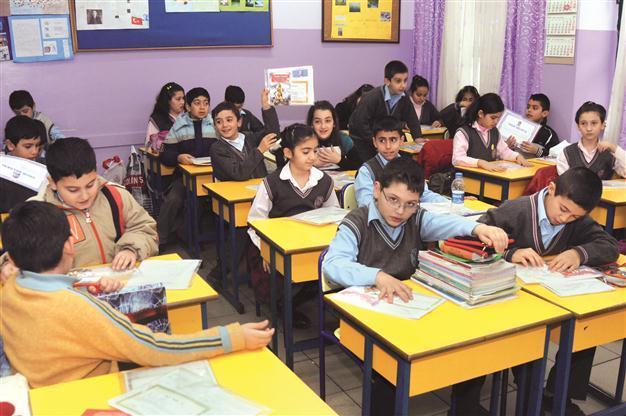Compulsory education length to rise to 12 years
ISTANBUL

The new system will require students to attend a primary, secondary and a high school for four years each instead of eight years of unbroken compulsory education.
The ruling Justice and Development Party (AKP) is set to present a draft bill to Parliament in the coming days to extend compulsory education in Turkey from the current eight years to 12 while augmenting the weight of specialized courses.
The new three-tier system will require students to attend a primary, secondary and a high school for four years each instead of the current arrangement requiring eight years of unbroken compulsory education in a primary school.
Students will now be able to change their schools after the first four years and attend another school’s second tier for their secondary education to vocational and religious vocational schools as well, according to daily Zaman.
Speaking to Hürriyet Daily News, Ahmet Özer, head of the Union of Educators Syndicate, said the aim of the draft was well-intentioned, but the new system needed very good preparation.
“The secondary vocational and religious vocational schools were closed down in 1997, and since then both schools give less graduates. This new system may increase the number of students in vocational schools, yet its substructure should be prepared very well,” he said .
Meanwhile, Batuhan Aydagül from the Education Reform Initiative at Sabancı University said the number of students attending schools was already rising in Turkey, so rather than focusing on the duration of mandatory education, Turkey should focus on the quality of education.
“Reports show that almost 60 percent of the students cannot solve a basic math problem. The Education Ministry should focus on raising the quality rather than the duration,” he said.
Field CoursesIf Parliament approves the draft bill, the Education Ministry will also redesign the existing secondary school curriculum so as to lend greater weight to specialized field courses.
Classroom teachers will conduct the initial four years of primary education, while subject-specific teachers will enter secondary school classes. Transition clauses will also reportedly be added to the amendment to prevent currently enrolled students from being unfairly affected by the new changes.
The system currently in effect is based on regulations adopted in 1997.
Meanwhile, legislators will also amend another law to prevent the judiciary from overturning a recent decision by the Higher Education Board (YÖK) to annul the application of different coefficients for students at university entrance exams.
